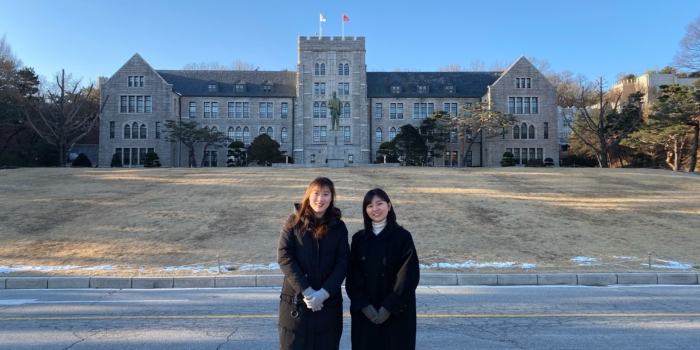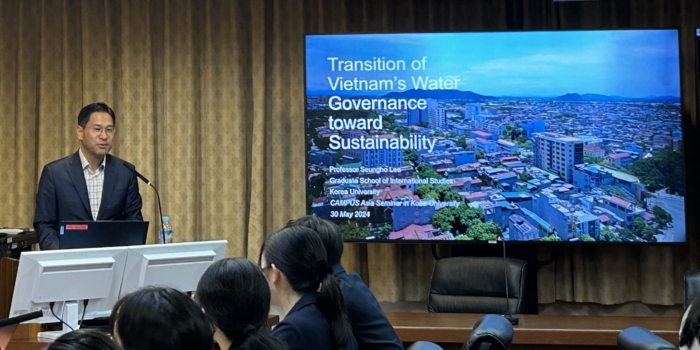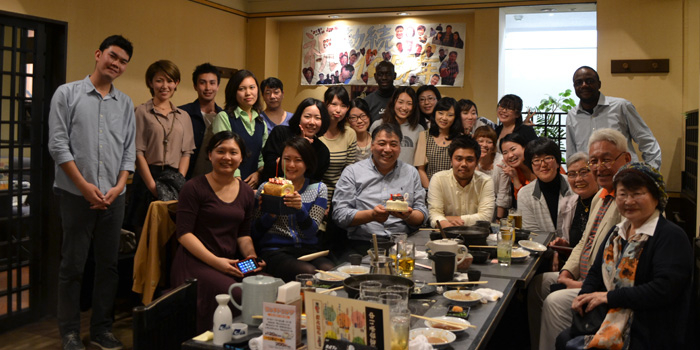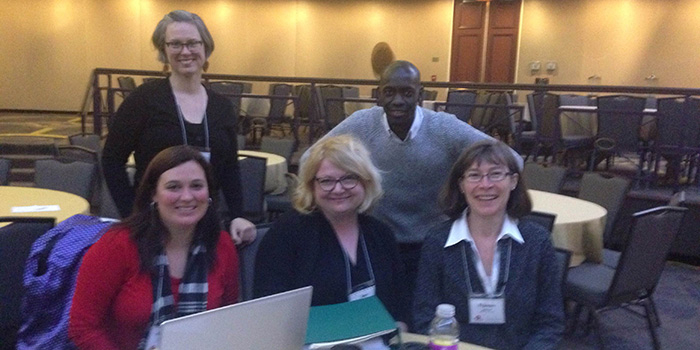From March 2023 to February 2024, I participated in the Campus Asia double degree program and studied at the Graduate School of International Studies (GSIS), Korea University in Korea. In this article, I share my experiences.
CAMPUS Asia (Collective Action for Mobility Program of University Students in Asia) is an exchange program supported by the Education Ministry of Japan, China, and Korea since 2012. It is implemented by five universities, including Chulalongkorn University (Thailand) and the National University of Laos (Lao PDR), which joined the program in 2021. These five universities form a consortium and conduct exchange programs and dual degree programs to foster graduate students who will become experts in risk management in East Asia. To know more about the program, see the program’s site.
Korea University is a private university located in Seoul. It was founded in 1905 and is one of the SKY (Seoul National University, Korea University, and Yonsei University) universities. The GSIS was established in 1991 and is a leading academic institution for educating and training young professionals specializing in international affairs. GSIS offers multifaceted courses in International Commerce, International Development & Cooperation, International Peace & Security, and Area Studies, all taught in English. I was enrolled in the International Development & Cooperation course. This course addresses issues related to international development. In particular, the course covers topics such as poverty and inequality reduction, achieving sustainable development, education, climate change, human rights, urban studies, international trade, international law, and human development.
GSIS lectures emphasize discussions, presentations, and group work among students, allowing students to interact with people from various backgrounds. Moreover, GSIS lectures are rich in variety, and students can take not only mandatory courses but also elective courses to acquire a wide range of knowledge. In addition to the required courses on International Business and Comparative Foreign Policy, I also took courses on Policy Evaluation, Southeast Asian Economy, and Case Analysis of International Organizations. The classes were interesting and gave me a broad insight into Asian politics, economics, and diplomacy.
As for the master’s thesis, the first semesters were devoted to literature review, with email and regular meetings with my supervisor, Professor Cuz Potter. In the second semester, I began writing the thesis. During the meetings, my advisor gave me a lot of advice and thoughtful comments so that I could finish the thesis on schedule.
For fieldwork, I went to Cheong Wa Dae (Blue House) in the first semester. I was able to learn about Korean history and politics, as well as about the traditional Korean buildings. In the second semester, I visited the World Bank’s Seoul office, where I learned about the World Bank’s activities in Korea and had the opportunity to interact directly with the staff. I think one of the most appealing aspects of this program is that in addition to learning at Korea University, I had such a valuable experience.
Finally, I would like to express my deepest gratitude to my academic advisor at Kobe University, Professor Keiichi Ogawa, for giving me this wonderful opportunity and for his strong support and encouragement. I am also grateful to Professor Cuz Potter of Korea University for his valuable comments and support in writing my master’s thesis. Moreover, I sincerely appreciate the professors in charge of Campus Asia at both Kobe University and Korea University and all those who supported me.
Authored by Runjing Guo (Master’s Student)
Related






